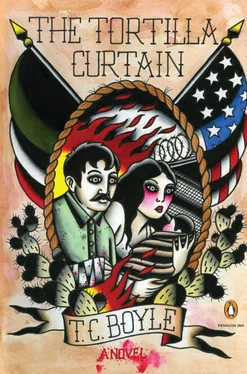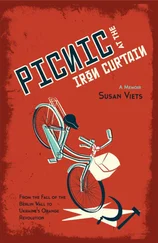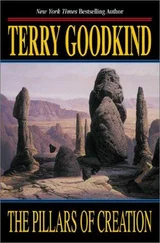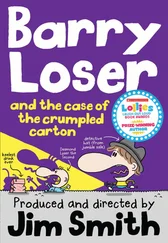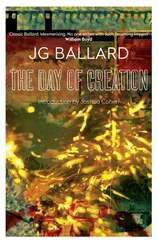T. Boyle - The Tortilla Curtain
Здесь есть возможность читать онлайн «T. Boyle - The Tortilla Curtain» весь текст электронной книги совершенно бесплатно (целиком полную версию без сокращений). В некоторых случаях можно слушать аудио, скачать через торрент в формате fb2 и присутствует краткое содержание. Год выпуска: 2011, Издательство: Penguin Books, Жанр: Современная проза, на английском языке. Описание произведения, (предисловие) а так же отзывы посетителей доступны на портале библиотеки ЛибКат.
- Название:The Tortilla Curtain
- Автор:
- Издательство:Penguin Books
- Жанр:
- Год:2011
- ISBN:нет данных
- Рейтинг книги:4 / 5. Голосов: 1
-
Избранное:Добавить в избранное
- Отзывы:
-
Ваша оценка:
- 80
- 1
- 2
- 3
- 4
- 5
The Tortilla Curtain: краткое содержание, описание и аннотация
Предлагаем к чтению аннотацию, описание, краткое содержание или предисловие (зависит от того, что написал сам автор книги «The Tortilla Curtain»). Если вы не нашли необходимую информацию о книге — напишите в комментариях, мы постараемся отыскать её.
The Tortilla Curtain — читать онлайн бесплатно полную книгу (весь текст) целиком
Ниже представлен текст книги, разбитый по страницам. Система сохранения места последней прочитанной страницы, позволяет с удобством читать онлайн бесплатно книгу «The Tortilla Curtain», без необходимости каждый раз заново искать на чём Вы остановились. Поставьте закладку, и сможете в любой момент перейти на страницу, на которой закончили чтение.
Интервал:
Закладка:
The water was warm, heated by the sun as it trickled down through the canyon, traveling all those tortuous miles to get here, to this pool, and the air on their wet skin was cool and gentle. Cándido felt his way, step by step, and America followed him, the water lapping at her breasts-she was so short, so skinny, such a _flaca-__the groceries and her bundled dress held up high above her head. He stumbled only once, midway across. It was almost as if a human hand had jerked his foot out from under him, but it must have been a branch, slick with algae and waving languidly in the current, some trick of the bottom-still, it caused him to fling out his arm in reaction and when he did the bag of eggs slammed against the rock wall like a lesson in fragility. “Are you all right?” America whispered. And then: “The eggs? Are they broken?”
But they weren't-except for two, that is, and he and America lapped them from the shells for strength even as he bent to light the fire and show off the fastness of the place and the hut he'd built with its stick-frame entrance and thatched roof. The fire caught and swelled. He knelt in the sand, feeding sticks into the grasping greedy fingers of flame, the smell of woodsmoke pricking his memory through the nostalgia of a thousand mornings at home, and he saw his mother burning a handful of twigs to get the stove going, corn gruel and toast and hot coffee smothered in sugar, and then he turned his head from the fire and watched his wife's limbs and hips and breasts fill with light. She was squatting, so busy with the meat, the pot, the onions and chiles and rice that she had no consciousness of her nudity, and he saw now, for the first time, that her pregnancy was a reality, as solid and tangible a thing as dough rising in a pan. She glanced up, saw him looking, and reached automatically for her dress. “No,” he said, “no, you don't need it. Not here, not with me.”
A long slow look, the hair hanging wet on the ends, and then she smiled again to show off her big square honest teeth. The dress stayed where it was.
They cooked the meat, the knots in their stomachs pulled tighter and tighter by the smell of it, the _hamburguesa__ meat working with the onions and _chiles__ to enrich the poor neutral breath of the canyon. They sat side by side in the sand, warmed by the fire, and shared the tin of sardines and ate half the loaf of store bread, North American bread baked in a factory and puffed up light as air. She held the last sardine out for him and he put his hands on her breasts and let her feed it into his mouth, the fire snapping, the night wrapped round them like a blanket, all his senses on alert. He took the sardine between his lips, between his teeth, and he licked the golden oil from her fingers.
In the morning, just before first light, they squatted over the pot and dipped _tortillas__ into the lukewarm stew. They drank their coffee cold, took a package of saltines and a slice of cheese each for lunch, and went naked into the pool. The water felt chilly at this hour and it was a trial to slosh through it like penitents in the penitential dawn, cursed by birds and harassed by insects. Their clothes felt clammy and damp and they looked away from each other's nudity as they hurriedly dressed on the cold shore. Still, as America followed Cándido's familiar compact form up the narrow dirt trail, she felt a surge of hope: the worst of it was behind them now. She would work, no matter what the fat man demanded of her, and Cándido would work too, and they'd take out just what they needed for food and necessities and the rest would go under a stone in the ground. In a month, maybe two, they could go up the canyon and into the city she barely knew. There was an apartment waiting there for them, nothing fancy, not for now-a single room with a hot shower and a toilet, some trees on the street and a market, someplace she could buy a dress, some lipstick, a brush for her hair.
Cándido was limping and he had to stop three times to catch his breath, but he was improving, getting better by the day, and that was an answer to her prayers too. They waited till there was a break in the traffic before emerging from the bushes and they kept their heads down and their feet moving as they hurried up the shoulder of the road. The cars terrified her. There was a chain of them, always a chain-ten, twenty, thirty-and they sucked the air with them, tore it from her lungs, and left a stink of exhaust behind. The tires hissed. The faces stared.
It was early, very early, and they were the first ones at the labor exchange, there even before Candelario Pérez. Most of the men took buses or hitched rides to get there, some coming from twenty and thirty miles away. And why go so far? Because they were country people and they hated the city streets, hated lining up on _las esquinas,__ the street corners, where there were gangs and dirt and filthy things written on the walls. America didn't blame them. She remembered her trip to Venice, the terror and disconnectedness of it, and as she settled into her customary spot against the pillar, drawing her legs up under her, she looked out into the heavy ribs of the trees and felt glad to be there.
Cándido sat heavily beside her, the good half of his face turned toward her in soft focus. He was fidgeting with his hands, snatching twigs from the dirt, snapping them in two and flicking the pieces away from him, over and over again. He'd removed the sling from his arm, but he still carried it awkwardly, and some of the crust had fallen away from the wound on his face, pale splotches of flesh like paint flecks showing through. He was quiet, moody, all the high spirits of the previous night dissolved in a look of silent fury that reminded her of her father, bent at night over the fine print of the newspaper, his back aching and his feet twisted from the confinement of the shoes they made him wear in the restaurant. Cándido was brooding, she could see that, afraid no one would choose him for work because of his face and the limp he couldn't disguise-even though he was first in line and would work his heart out. And though he hadn't said a word, neither of apology nor of thanks, she knew it hurt him to have a woman earning his keep. She made small talk to distract him-It was going to be warm, wasn't it? The stew had turned out well, hadn't it? Would he be sure to remind her to pick up a little soap powder so she could wash their clothes tonight? — but no matter what she said he responded only with a grunt.
Candelario Pérez arrived ten minutes later in a battered white pickup with six other men, and then the lot began to fill. Men came singly and in groups of two or three, appearing out of nowhere, loose-jointed and hopeful, men of all ages, their hands empty, their clothes simple and clean. A few of them stood apart, gathering across the road at the intersection of one of the side streets, or milling around in clumps of two or three in the post office parking lot, taking their chances with the _gringos,__ but most shuffled across the expanse of gravel, dust and weed to report to Candelario Pérez.
And then the contractors began to arrive, the white men with their big bleached faces and soulless eyes, enthroned in their trucks. They wanted two men or three, they wanted four or five, no questions asked, no wage stipulated, no conditions or terms of employment. A man could be pouring concrete one day, spraying pesticide the next-or swabbing out urinals, spreading manure, painting, weeding, hauling, laying brick or setting tile. You didn't ask questions. You got in the back of the truck and you went where they took you. And the bosses, the ones who did the hiring, sat up front, as motionless as if they were carved of wood. América wondered if they were somehow grafted to their trucks, if their mothers had given birth to them right there on the seat of the cab and they'd sprouted up behind the windshield like some sort of unnatural growth. All she ever saw of them was elbows and faces. She sat there quietly, waiting for someone who might need a floor mopped or an oven cleaned and the trucks pulled up, the tinted windows sank noiselessly into the gleaming door panels and the elbows appeared, followed by the sharp pointed noses and oversized ears, the flat hard calculating eyes wrapped in sunglasses.
Читать дальшеИнтервал:
Закладка:
Похожие книги на «The Tortilla Curtain»
Представляем Вашему вниманию похожие книги на «The Tortilla Curtain» списком для выбора. Мы отобрали схожую по названию и смыслу литературу в надежде предоставить читателям больше вариантов отыскать новые, интересные, ещё непрочитанные произведения.
Обсуждение, отзывы о книге «The Tortilla Curtain» и просто собственные мнения читателей. Оставьте ваши комментарии, напишите, что Вы думаете о произведении, его смысле или главных героях. Укажите что конкретно понравилось, а что нет, и почему Вы так считаете.
